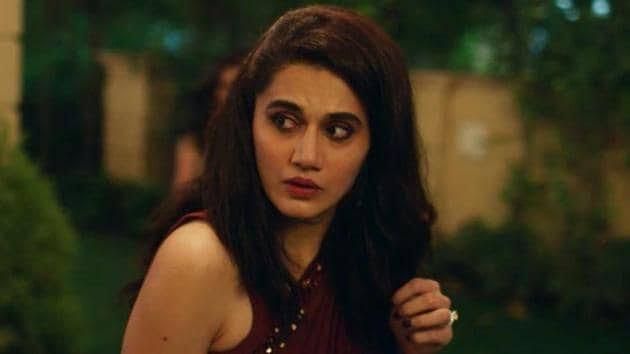Celebrated annually on March 8, International Women’s Day is not just a day to celebrate women’s achievements but also a call to action for gender equality. In cinema, there have been certain performances that transcend mere entertainment, leaving an indelible mark on audiences and sparking profound conversations about pressing societal issues. Through their roles, actors have become catalysts for change, using their platforms to inspire viewers to stand up for themselves and others. Let’s delve deeper into five remarkable instances where actors have ignited meaningful discussions and encouraged societal transformation through their powerful portrayals.

- Taapsee Pannu in “Thappad”:
Taapsee Pannu’s compelling performance in “Thappad” brought to light the pervasive issue of domestic violence and the significance of respect within relationships. As Amrita, Tapsee portrayed a woman who, after experiencing a seemingly trivial yet deeply disrespectful act from her husband, decides to challenge societal norms and demand recognition of her worth. Her character’s journey prompts viewers to reflect on the importance of setting boundaries and standing up against any form of abuse, inspiring conversations about gender dynamics and personal autonomy.


- Akansha Ranjan Kapoor in “Guilty”:
In “Guilty,” Akansha Ranjan Kapoor delivered a nuanced portrayal that tackled the complexities of sexual assault and victim-blaming culture. As Tanu Kumar, Akansha navigates through a maze of deception and prejudice to seek justice for herself and other survivors. Her character’s resilience in the face of societal judgment and her unwavering determination to confront uncomfortable truths about power dynamics and privilege serve as a poignant reminder of the importance of believing survivors and holding perpetrators accountable. Akansha’s performance encourages viewers to reevaluate their perceptions of consent and responsibility, sparking vital discussions about rape culture and the urgent need for societal change.


- Kangana Ranaut in “Queen”:
Kangana Ranaut’s transformative portrayal in “Queen” resonated deeply with audiences, particularly women, as it celebrated the journey of self-discovery and empowerment. As Rani, Kangana embodied the spirit of independence and resilience, defying societal expectations and embarking on a solo journey of exploration and growth after a heartbreak. Her character’s evolution from vulnerability to empowerment serves as a powerful inspiration for viewers to embrace their individuality, challenge societal norms, and pursue their dreams fearlessly. Ranaut’s performance ignites conversations about gender roles, self-empowerment, and the importance of charting one’s own path in life.
- Rani Mukerjee in “Mrs. Chattarjee V/s Norway”:
Rani Mukerjee’s portrayal in “Mrs. Chattarjee V/s Norway” shed light on the often-overlooked struggles of parents fighting for custody rights, especially in the context of international disputes. As Mrs. Chattarjee, Mukerjee depicted the harrowing journey of a mother battling against bureaucratic hurdles and cultural barriers to reunite with her child. Her character’s unwavering determination and resilience in the face of adversity highlight the systemic challenges faced by families in similar situations, sparking conversations about the need for legal reform and the protection of parental rights. Mukerjee’s performance serves as a poignant reminder of the human cost of legal loopholes and the importance of advocating for fairness and justice for all families.


- Vidya Balan in “Sherni”:
Vidya Balan’s portrayal in “Sherni” shed light on the challenges faced by women in male-dominated professions, particularly in the context of wildlife conservation. As Vidya Vincent, Balan depicted the struggles of a female forest officer navigating through systemic biases and bureaucratic hurdles to tackle a rogue tiger problem. Her character’s resilience and determination to uphold her principles despite opposition serve as an inspiration for viewers, sparking conversations about gender equality and the importance of female representation in leadership roles. Balan’s performance in “Sherni” reinforces the message of empowerment and the need for societal change to create a more inclusive and equitable environment for all

